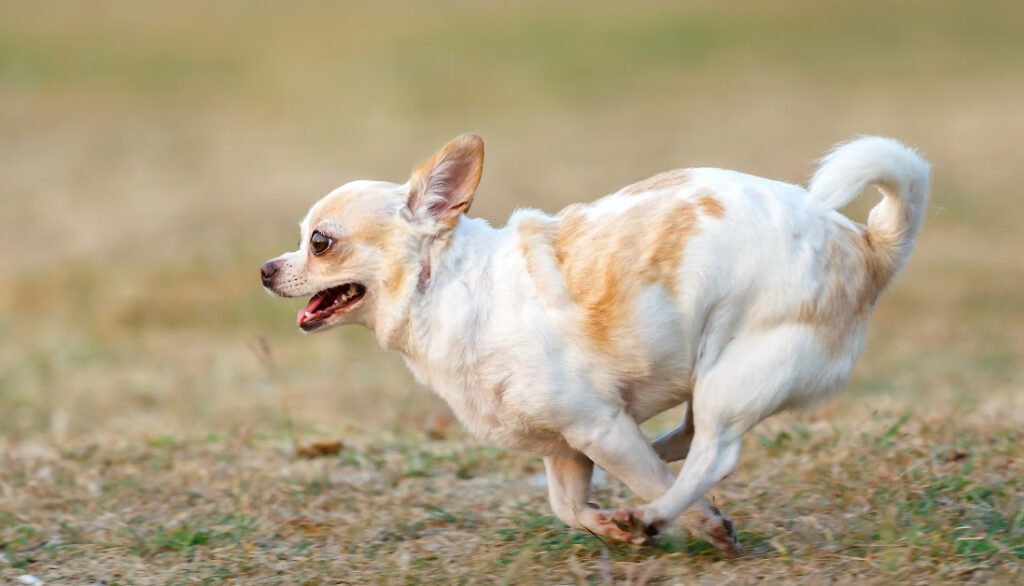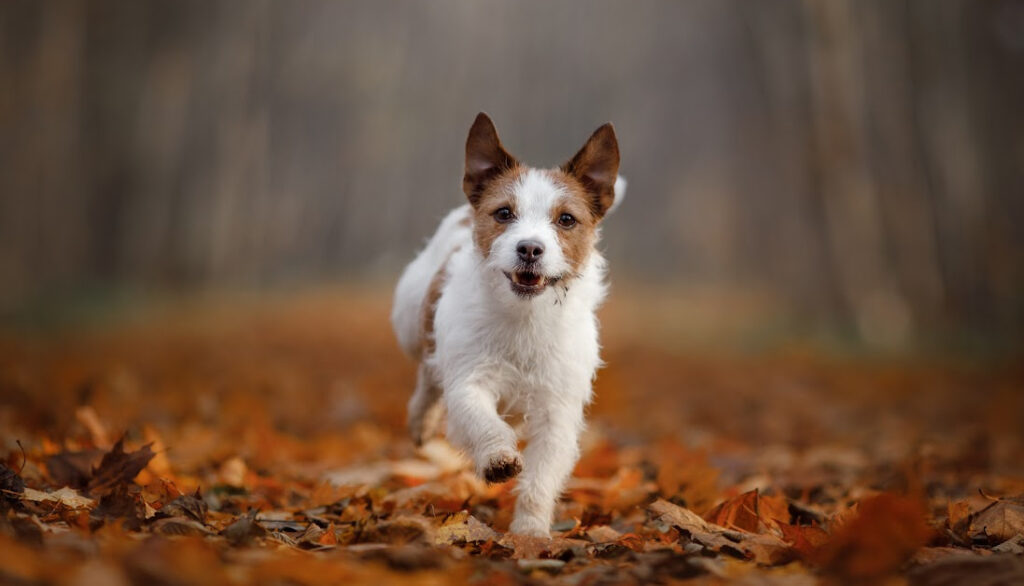Deciding to bring a dog into your life is a significant commitment. It’s a decision that requires careful thought and understanding of the unique behavioral patterns and traits of different breeds. If you have stumbled upon this article, you probably have questions about the most annoying dog breeds and how to handle them. Well, you’re in luck! I am here to shed some light on this topic from a holistic veterinary perspective.

Dogs, like humans, have unique personalities. Some dog breeds have attributes that can be quite challenging. Excessive barking, a high level of energy, or stubbornness are common traits that can be misconstrued as annoying. However, it is essential to understand that these traits are often a part of their genetic makeup and breed-specific behaviors. Being aware of these nuances helps set realistic expectations and equips you with the necessary knowledge to manage their behaviors effectively.
Training is an integral part of managing behaviors in dogs. While some might view certain breeds as ‘difficult,’ with the right approach, patience, and consistency, even the most notoriously stubborn or energetic breeds can be trained. Positive reinforcement techniques and establishing a consistent training routine are strategies that can help mitigate annoying behaviors.
Remember, a breed’s reputation doesn’t define an individual dog’s personality. Each dog is unique, and with the right training and a loving home, their most annoying behaviors can be channeled into positive outlets. So, let’s explore these breeds together and find out how we can turn those ‘annoying’ traits into endearing quirks. This way, we can ensure a harmonious and loving relationship between you and your furry friend!
Common Traits of Annoying Dog Breeds
Ever wondered why some dog breeds are often deemed more challenging than others? Let’s delve into some of the behavioral traits that can make a dog breed come across as annoying, and how understanding these characteristics can help us better manage and enjoy our furry companions.
Excessive Barking and Vocalization
Some dog breeds are naturally more vocal than others. For instance, small breeds like Chihuahuas or Dachshunds are often notorious for their relentless barking. This trait can be traced back to their history as they were bred to alert their owners of any intruders. While their barking might have been useful centuries ago, in our modern-day apartment living, constant barking can be challenging to handle, often leading to noise complaints.
It’s essential to understand that excessive barking doesn’t necessarily mean your dog is being deliberately annoying. Often, it’s their way of communicating their needs or expressing discomfort, boredom, or anxiety. Thus, understanding what triggers your dog’s vocalization can help you address the root cause and manage their barking effectively.
High Energy Levels and Hyperactivity
When we talk about high-energy breeds, the Jack Russell Terrier might be one of the first to come to mind. These dogs are packed with boundless energy and an insatiable desire to be on the move. And they’re not alone. Breeds such as Beagles, Bulldogs, and German Shepherds are also known for their high energy levels.
This trait can become a problem if the dog’s energy is not channelled correctly. An unexercised dog can quickly become a destructive one. They can engage in bothersome behaviors like chewing on furniture, incessant barking, or running around uncontrollably.
However, it’s important to remember that these dogs are not trying to be annoying. They have a natural desire to explore, hunt, and play. If their energy isn’t appropriately directed, it can lead to frustration and destructive behavior.
Understanding these common traits of what some might label as the most annoying dog breeds is essential. It’s not about labelling the breed as good or bad, but rather about understanding their inherent traits and needs. By doing so, we can create an environment that caters to these needs and reduces the likelihood of what some might perceive as ‘annoying’ behavior.
In the next sections, we’ll look at a few breeds often labelled as challenging and explore their specific traits. We’ll also discuss some effective training strategies to help mitigate these behaviors, because every dog, regardless of its breed, has the potential to be a wonderful companion with the right training, understanding, and love.

Top Annoying Dog Breeds: A Listicle
In the canine world, each breed has its charm and quirks. But some breeds tend to have behavior traits that can test the patience of even the most devoted dog lover. Let’s reveal the breeds that often end up on the list of most annoying dog breeds.
Small Breeds with Big Personalities
First off, we have the small breeds that can be surprisingly loud and energetic for their size.
– Chihuahua: This tiny dog breed is known for its high-pitched barking. Chihuahuas are vocal creatures that love to express their feelings and can become quite yappy if not trained properly.
– Dachshund: Don’t be fooled by their short legs. Dachshunds are known for their stubbornness. They love to get their way and may resist training or commands.
Large Breeds with Demanding Behavior
Large breeds can also come with their own set of challenges. These dogs often require more exercise, mental stimulation, and can be more headstrong.
– Jack Russell Terrier: This breed is known for its boundless energy. Jack Russells are not just physically active; they’re mentally active as well. They require constant mental and physical stimulation to prevent them from developing destructive behaviors.
– Beagle: These dogs are governed by their noses. Beagles are driven by scents and can become single-minded when they catch a whiff of something interesting, often ignoring commands and becoming easily distracted.
– German Shepherd: German Shepherds are intelligent dogs that require plenty of mental stimulation. Without it, they can become bored and destructive. They also tend to become overly protective of their family and territory if not properly socialized.
– Bulldog: Bulldogs are laid-back and often stubborn. They love to lounge and aren’t always keen on following commands or engaging in vigorous exercise.
Remember, these traits don’t make a breed ‘bad’. They’re just behaviors that some people might find challenging. However, with consistent training and a good understanding of the breed’s needs, you can work towards a harmonious relationship with your furry friend, no matter how ‘annoying’ their breed might be perceived!
Remember, it’s always critical to research and understand the behavioral traits of any dog breed before bringing one into your home. What might be considered ‘annoying’ for one person may be endearing to another. The key is to ensure that you and your chosen breed are a good fit for one another.
The Chihuahua: A Small but Mighty Challenge
Chihuahuas may be small, but they are known for their big personalities. This dog breed can be a real challenge due to their tenacious spirit, vocal tendencies, and high energy levels.
Dealing with the Chihuahua’s Vocal Tendencies
If you’re searching for most annoying dog breeds, you’ll often find the Chihuahua high on that list. They’re known for their high-pitched bark, which they’re not afraid to use liberally. Chihuahuas are quick to alert their owners to anything they perceive as a threat, and this can result in consistent and excessive barking.
While this trait makes them excellent watchdogs, it can also make them quite annoying. One way to manage this is through distraction techniques. Engaging your Chihuahua with toys or treats can break their focus and stop the barking. Remember, however, that shouting at them to be quiet will only make them more excited and likely encourage more noise.
Training Tips for the Energetic Chihuahua
For such a small breed, Chihuahuas have an abundance of energy. They love to play and explore, making them a lively addition to any household. However, this energy can also lead to destructive behavior if not appropriately managed.
Here are some training tips for handling an energetic Chihuahua:
- Engage in Regular Exercise: While they’re not endurance runners, Chihuahuas benefit from regular short bursts of exercise. This could be a quick game of fetch or a short walk in the park.
- Provide Mental Stimulation: Training sessions, puzzles, and interactive toys can help keep their minds sharp and busy. This can help prevent boredom, which often leads to destructive behavior.
- Start Training Early: Chihuahuas tend to be stubborn, making it crucial to start training as early as possible. Use positive reinforcement techniques and be consistent with your training sessions.
- Use a Firm, Gentle Approach: Chihuahuas can be sensitive and don’t respond well to harsh training methods. Be firm but kind when training your dog, and always end sessions on a positive note.
Remember, every Chihuahua is unique, and what works for one might not work for another. It’s crucial to adapt your training approach to your dog’s specific personality and needs.
Despite their reputation as one of the most annoying dog breeds, Chihuahuas are also incredibly loving and loyal. With the right training and patience, they can bring a lot of joy and companionship to your life.

The Dachshund: Stubborn but Lovable
Next on our list of the most annoying dog breeds is the Dachshund, a breed that is as stubborn as it is endearing. Dachshunds, with their elongated bodies and short legs, are known for their tenacity and determination, traits that were highly valued in their original role as badger hunters. However, these same traits can make them a challenge to train.
Understanding the Dachshund’s Stubborn Streak
As a Dachshund parent, you’ll quickly realize that this breed has a mind of its own. They are intelligent, independent, and can be quite stubborn when they want to be. This can manifest in a variety of ways, such as refusing to obey commands, resisting house training, and being selective about when and where they choose to listen. Their stubbornness is often mistaken for a lack of intelligence, but this couldn’t be further from the truth. Dachshunds are quick learners, they just prefer to do things on their own terms.
Another challenge with Dachshunds is their propensity to dig. This behavior is a remnant of their hunting days, but it can become problematic when your garden becomes their favourite digging spot. They also have a strong prey drive and can be quite vocal, which can be a nuisance if not properly managed.
Effective Training Strategies for Dachshunds
Training a Dachshund requires patience, consistency, and a good understanding of their personality. Here are some tips to help you train your Dachshund effectively:
- Start early: Start training your Dachshund as early as possible. Puppies are more receptive to training and can learn commands and good behavior from a young age.
- Use positive reinforcement: Dachshunds respond well to positive reinforcement. Reward good behavior with treats, praise, or playtime. This will encourage them to repeat the behavior in the future.
- Be consistent: Consistency is key when training a Dachshund. Ensure that all family members use the same commands and follow the same rules. This will prevent confusion and make training more effective.
- Manage their energy: Dachshunds are energetic dogs and need regular exercise to burn off their excess energy. Regular walks, playtime, and mental stimulation can help keep their energy levels in check and reduce unwanted behavior.
- Address unwanted behavior: If your Dachshund exhibits unwanted behavior, such as excessive barking or digging, it’s important to address it immediately. Redirect their attention to something more positive or use a firm ‘no’ to discourage the behavior.
In conclusion, while Dachshunds can be a challenge to train due to their stubbornness, they are also incredibly lovable and rewarding companions. With the right training approach, you can channel their tenacity into positive behavior and enjoy a harmonious relationship with these unique and charismatic dogs.
The Jack Russell Terrier: Boundless Energy
If you’re a dog parent who has a Jack Russell Terrier, then you’re already aware of the boundless energy this breed possesses. Originally bred for fox hunting, this breed is characterized by its tenacity, courage, and overflowing energy levels.
Managing the Jack Russell’s High Energy
Jack Russells are notorious for their hyperactivity and can be quite a handful for those who are not prepared for their energetic personality. They require a lot of exercise and mental stimulation to keep their minds occupied and their energy levels in check. Here are a few tips to help manage your Jack Russell’s energy:
- Provide regular exercise: Jack Russells require at least an hour of strenuous exercise daily. This could be in the form of walks, runs, or playtime in the yard.
- Engage in mental stimulation: Puzzle toys, training sessions, and hide-and-seek games can keep your dog mentally stimulated and less likely to become bored and destructive.
- Encourage calm behavior: Reward your dog when they are calm and quiet to reinforce the behavior. This can be done with treats, praise, or petting.
Remember, a tired Jack Russell is a good Jack Russell. Keeping them physically and mentally active is crucial to managing their energy levels and reducing the likelihood of them becoming an “annoying” dog breed.
Training Techniques for the Active Terrier
Training a Jack Russell can be challenging due to their independent and stubborn streak. However, with consistency, patience, and the right techniques, you can achieve a well-behaved pet.
- Positive reinforcement: Use treats, praise, or toys to reward good behavior. This will encourage your dog to repeat the behavior.
- Consistency is key: Jack Russells respond well to consistency. Make sure everyone in your household is on the same page about rules and training techniques.
- Understanding their instincts: Jack Russells were bred for hunting, so they have a strong prey drive. Teaching them commands like “leave it” or “stay” can help manage this instinct.
- Early socialization: Expose your dog to different people, pets, and environments to help them become well-rounded and sociable.
The Jack Russell Terrier, like any other breed, has its unique challenges. However, understanding their traits and adapting your training techniques to their needs can turn your energetic and mischievous pet into a well-behaved and manageable companion. Remember, every dog, regardless of breed, can benefit from positive, consistent, and kind training methods. With time, patience, and understanding, you can improve their behavior and build a rewarding relationship with your Jack Russell.
Most annoying dog breeds aren’t really annoying per se. They just require the right approach to bring out their best behavior.

The Beagle: A Nose for Trouble
When you think of the most annoying dog breeds, the Beagle might spring to mind. These canines, known for their sharp noses and adorable expressions, are also infamous for their distinctive howling and independent nature. Beagles are scent hounds, bred for tracking down game, a trait that can sometimes lead them into trouble in a domestic setting.
Addressing the Beagle’s Predilection for Scents
Beagles have an exceptional sense of smell, second only to the Bloodhound. This means they are naturally inclined to follow their noses, often ignoring everything else around them. This can be annoying when you’re walking them in the park and they continually pull on the leash to chase after enticing scents.
They’re also known for their ‘selective deafness’ when they’ve caught a whiff of something interesting. This means they might ignore your call to come back, which could potentially lead to dangerous situations.
To address this behavior, giving them plenty of exercise and mental stimulation is a must. In addition, you can work on their recall training in a controlled environment to strengthen their responsiveness to commands, even when they are distracted by enticing smells.
Training Approaches for the Curious Beagle
Despite these challenges, Beagles are smart and eager to please, making them trainable with the right approach. Here’s a list of effective strategies to manage their behavior and channel their energy positively:
- Positive reinforcement: Beagles respond well to positive reinforcement techniques. Reward them with treats, praises, or playtime whenever they follow your command. This will motivate them to listen to you more often.
- Consistency: Consistency is key when training Beagles. Make sure all family members are using the same commands and rewarding or discouraging the same behaviors.
- Early socialization: Introduce your Beagle puppy to different people, places, and experiences to help them grow into a well-rounded, obedient dog.
- Distraction training: Train your Beagle to focus on you even when there are distractions around. Start in a quiet space and gradually add distractions as they improve.
- Scent games: Channel their love for scents into fun games. Hide treats around the house or yard and allow your Beagle to ‘hunt’ for them. This can keep them mentally stimulated and less likely to get into mischief.
Remember, patience is key when training a Beagle. They may be among the most annoying dog breeds, but with the right guidance and understanding, they can also be one of the most delightful companions. Remember, every Beagle is different and what works for one might not work for another. Always adapt your approach based on your Beagle’s unique personality and needs.
The German Shepherd: Intelligent but Demanding
If you’re looking for a breed that’s brilliant, loyal and full of spirit, you can’t go wrong with the German Shepherd. Nonetheless, their intelligence and demanding nature can make them one of the most annoying dog breeds if not properly trained and challenged.
Catering to the German Shepherd’s Intellectual Needs
German Shepherds crave mental stimulation. Like a bright child, they can get bored easily if they’re not regularly challenged. They’re not a breed you can leave lying around the house all day with nothing to do. Here are some ways to satisfy their intellectual needs:
- Puzzle Toys: These toys require your dog to think and strategize to get a reward, usually a treat. They can keep your German Shepherd busy and mentally stimulated for hours.
- Advanced Training: Teach your German Shepherd more than just the basic commands. They can learn complex tricks, agility training, or even dog sports.
- Work Jobs: German Shepherds were bred to work. If possible, providing them with a job, like search and rescue or herding, can keep them content and fulfilled.
Discipline and Training for the German Shepherd
German Shepherds are known for their strong will. They can be stubborn and may try to assert dominance if not properly trained. However, this should not discourage you. With consistent discipline and training, you can establish yourself as the pack leader and encourage better behavior. Below are some training strategies:
- Start Early: Begin training as soon as your German Shepherd puppy is comfortable in your home. The earlier you start, the easier it will be to manage their behavior.
- Consistency is Key: Be consistent with your commands and expectations. If you let your German Shepherd get away with undesirable behavior even once, they will try it again.
- Positive Reinforcement: Reward good behavior with treats, praise, or playtime. This will encourage your German Shepherd to repeat those behaviors.
- Firm but Gentle Correction: When your German Shepherd exhibits undesirable behavior, correct them immediately but gently. Harsh punishment is not effective and can harm your relationship.
Final Thoughts
With the right approach, even the most annoying dog breeds can turn into loving, well-behaved companions. Although German Shepherds can indeed be demanding, their intelligence, loyalty, and eagerness to please also make them highly trainable. As a German Shepherd parent, your role is to provide them with the mental stimulation they require and establish consistent, positive training sessions. In doing so, you’ll not only reduce annoying behaviors but also build a strong, loving bond with your furry friend. Remember – success comes with patience, consistency, and a lot of love. Embrace the challenge!
Frequently Asked Questions
Q1: What are some of the most annoying dog breeds?
A: While it’s important to remember that behavior can vary greatly within a breed, some breeds that are often cited as being challenging include Beagles, Dachshunds, and Jack Russell Terriers.
Q2: How can I train my dog to improve their behavior?
A: Consistent, positive reinforcement training methods are generally the most effective. This involves rewarding your dog for good behavior, rather than punishing them for bad behavior. It can also be helpful to work with a professional dog trainer.
Q3: Are certain dog breeds naturally more annoying than others?
A: It’s not accurate or fair to label any breed as naturally “annoying”. However, certain breeds may have traits that can be challenging for some people. For example, some breeds are very high energy and require a lot of exercise, which can be difficult for people with a more sedentary lifestyle.
Q4: My dog’s breed isn’t typically considered “annoying”, but they’re exhibiting challenging behaviors. What can I do?
A: Remember, there can be a lot of variation within a breed. Just because your dog’s breed isn’t typically considered “annoying” doesn’t mean they can’t exhibit challenging behaviors. Consistent training and, if necessary, working with a professional can help improve your dog’s behavior.
Q5: Can older dogs still be trained to improve their behavior?
A: Absolutely! While it’s often easier to train dogs when they’re young, older dogs can still learn new behaviors. It may just require a bit more patience and consistency.
Dr. Candy, a holistic veterinarian and certified raw dog food nutrition specialist, graduated from Oklahoma State University in 2009 with a DVM and has since specialized in companion animal nutrition, advocating for species-specific diets. With a background in wildlife rehabilitation and oil spill response, she combines holistic health and conventional medicine in her unique approach to treating chronic diseases, allergies, and autoimmune conditions in pets. As the owner of a veterinary practice in Colorado and an author, Dr. Candy is dedicated to educating pet parents and improving the health and happiness of animals.




